BYD Tang vs Porsche Macan - Differences and prices compared
Compare performance (517 HP vs 639 HP), boot space and price (64300 £ vs 69200 £) at a glance. Find out which car is the better choice for you – BYD Tang or Porsche Macan?
Costs and Efficiency:
Looking at overall running costs, both models reveal some interesting differences in everyday economy.
BYD Tang has a minimal advantage in terms of price – it starts at 64300 £, while the Porsche Macan costs 69200 £. That’s a price difference of around 4886 £.
In terms of energy consumption, the advantage goes to the Porsche Macan: with 17 kWh per 100 km, it’s clearly more efficient than the BYD Tang with 24 kWh. That’s a difference of about 7 kWh.
As for range, the Porsche Macan performs slightly better – achieving up to 644 km, about 114 km more than the BYD Tang.
Engine and Performance:
Power, torque and acceleration say a lot about how a car feels on the road. This is where you see which model delivers more driving dynamics.
When it comes to engine power, the Porsche Macan has a somewhat edge – offering 639 HP compared to 517 HP. That’s roughly 122 HP more horsepower.
In acceleration from 0 to 100 km/h, the Porsche Macan is decisively quicker – completing the sprint in 3.30 s, while the BYD Tang takes 4.90 s. That’s about 1.60 s faster.
In terms of top speed, the Porsche Macan performs distinct better – reaching 260 km/h, while the BYD Tang tops out at 190 km/h. The difference is around 70 km/h.
There’s also a difference in torque: Porsche Macan pulls clearly perceptible stronger with 1130 Nm compared to 680 Nm. That’s about 450 Nm difference.
Space and Everyday Use:
Cabin size, boot volume and payload all play a role in everyday practicality. Here, comfort and flexibility make the difference.
Seats: BYD Tang offers evident more seating capacity – 7 vs 5.
In curb weight, Porsche Macan is to a small extent lighter – 2295 kg compared to 2630 kg. The difference is around 335 kg.
In terms of boot space, the Porsche Macan offers significantly more room – 540 L compared to 235 L. That’s a difference of about 305 L.
In maximum load capacity, the BYD Tang performs to a small extent better – up to 1655 L, which is about 307 L more than the Porsche Macan.
When it comes to payload, BYD Tang barely noticeable takes the win – 575 kg compared to 545 kg. That’s a difference of about 30 kg.
Who wins the race?
The Porsche Macan proves to be is largely superior and therefore becomes our DriveDuel Champion!
Porsche Macan is the better all-rounder in this comparison.
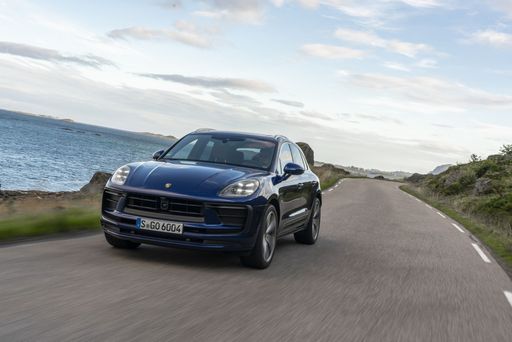
Porsche Macan
Costs and Consumption
View detailed analysis
Engine and Performance
View detailed analysis
Dimensions and Body
View detailed analysis
BYD Tang
The BYD Tang is a bold, tech-loaded SUV that blends striking design with roomy practicality, making it equally at home on the school run and the open road. Packed with clever tech and a powertrain that mixes efficiency with eager performance, it’s a smart, value-focused pick for buyers who want electric-age comfort without the premium-brand fuss.
details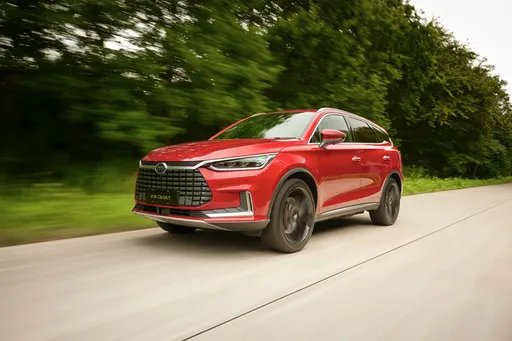
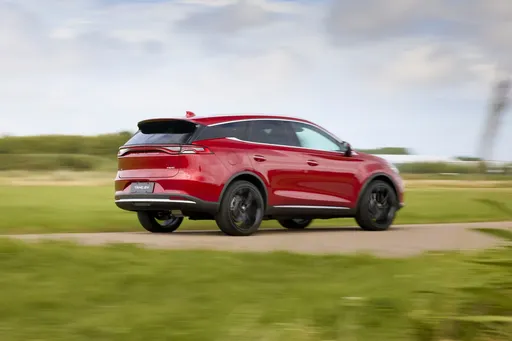
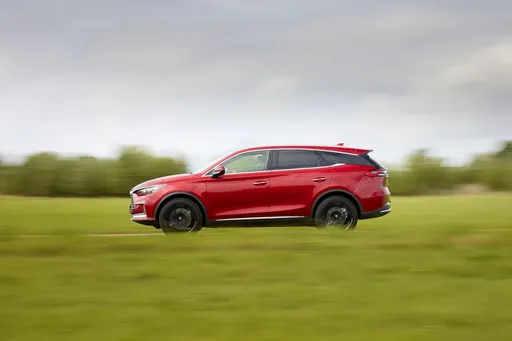
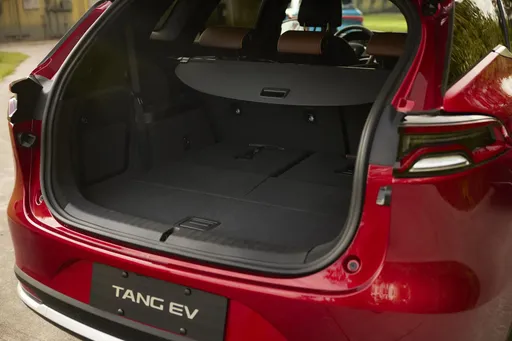
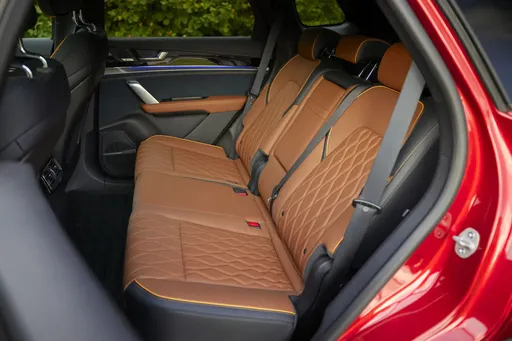
Porsche Macan
The Porsche Macan feels like a compact sports car dressed in SUV clothes, delivering razor-sharp handling and a cabin that somehow mixes luxury with everyday practicality. For buyers who crave driving thrills without sacrificing usability, the Macan is a rare breed that makes running errands feel like a weekend blast and manages to look smugly good in the process.
details
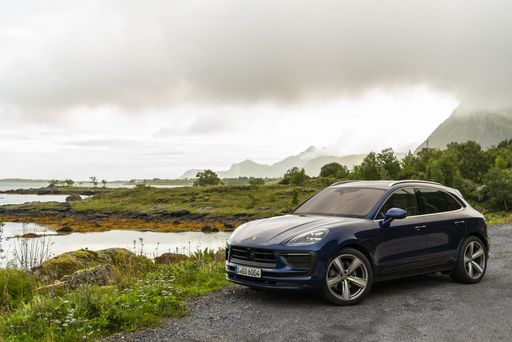
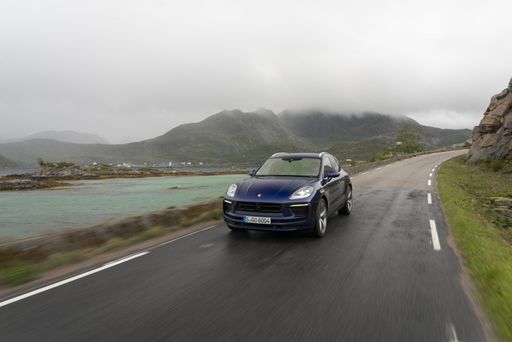
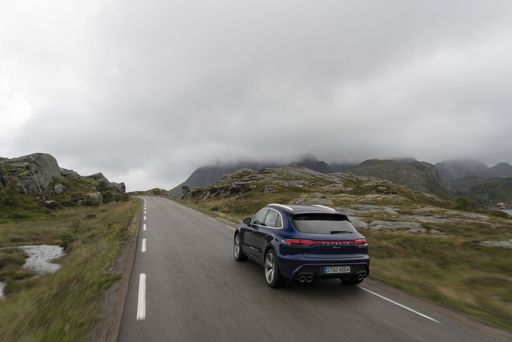
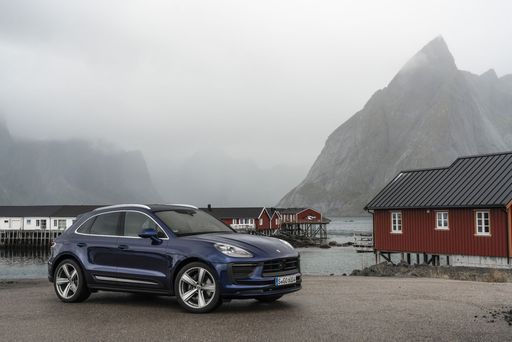
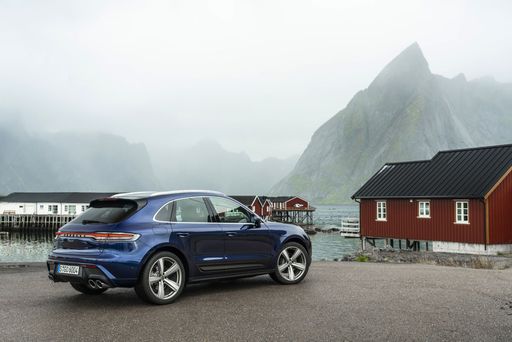
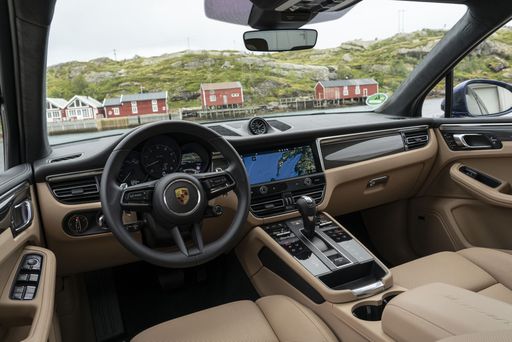

|

|
|
|
|
Costs and Consumption |
|
|---|---|
|
Price
64300 £
|
Price
69200 - 99000 £
|
|
Consumption L/100km
-
|
Consumption L/100km
-
|
|
Consumption kWh/100km
24 kWh
|
Consumption kWh/100km
17 - 18.5 kWh
|
|
Electric Range
530 km
|
Electric Range
585 - 644 km
|
|
Battery Capacity
-
|
Battery Capacity
95 kWh
|
|
co2
0 g/km
|
co2
0 g/km
|
|
Fuel tank capacity
-
|
Fuel tank capacity
-
|
Dimensions and Body |
|
|---|---|
|
Body Type
SUV
|
Body Type
SUV
|
|
Seats
7
|
Seats
5
|
|
Doors
5
|
Doors
5
|
|
Curb weight
2630 kg
|
Curb weight
2295 - 2470 kg
|
|
Trunk capacity
235 L
|
Trunk capacity
476 - 540 L
|
|
Length
4970 mm
|
Length
4784 - 4805 mm
|
|
Width
1955 mm
|
Width
1938 - 1952 mm
|
|
Height
1745 mm
|
Height
1613 - 1623 mm
|
|
Max trunk capacity
1655 L
|
Max trunk capacity
1288 - 1348 L
|
|
Payload
575 kg
|
Payload
470 - 545 kg
|
Engine and Performance |
|
|---|---|
|
Engine Type
Electric
|
Engine Type
Electric
|
|
Transmission
Automatic
|
Transmission
Automatic
|
|
Transmission Detail
Reduction Gearbox
|
Transmission Detail
Reduction Gearbox
|
|
Drive Type
All-Wheel Drive
|
Drive Type
Rear-Wheel Drive, All-Wheel Drive
|
|
Power HP
517 HP
|
Power HP
360 - 639 HP
|
|
Acceleration 0-100km/h
4.90 s
|
Acceleration 0-100km/h
3.3 - 5.7 s
|
|
Max Speed
190 km/h
|
Max Speed
220 - 260 km/h
|
|
Torque
680 Nm
|
Torque
563 - 1130 Nm
|
|
Number of Cylinders
-
|
Number of Cylinders
-
|
|
Power kW
380 kW
|
Power kW
265 - 470 kW
|
|
Engine capacity
-
|
Engine capacity
-
|
General |
|
|---|---|
|
Model Year
2024
|
Model Year
2024 - 2025
|
|
CO2 Efficiency Class
A
|
CO2 Efficiency Class
A
|
|
Brand
BYD
|
Brand
Porsche
|
Is the BYD Tang offered with different drivetrains?
The BYD Tang is available as All-Wheel Drive.
The prices and data displayed are estimates based on German list prices and may vary by country. This information is not legally binding.
